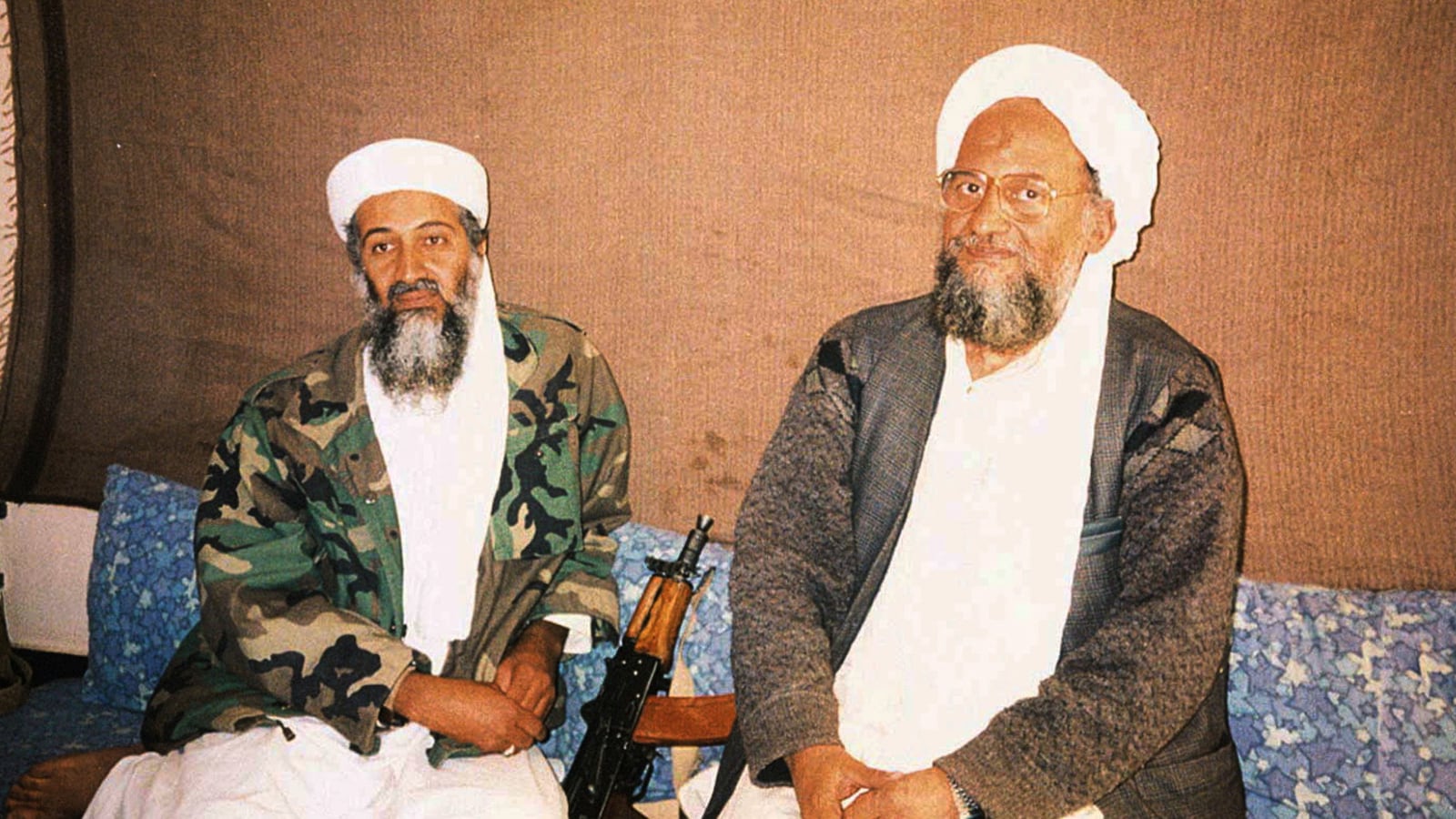When Ayman al-Zawahiri, the post-Osama bin Laden leader of al Qaeda, was obliterated on the balcony of a pink house in a posh-for-Kabul district in the Afghan capital, neighbors heard a bang but did not see signs of an explosion.
A neighbor who lives nearby told Reuters that she heard a loud noise on Sunday but curiously did not see the usual chaos most Kabul residents associate with a bomb or missile attack, including smoke and fire. That has led the ballistics chattering class to presume the attack was carried out by the notorious “flying Ginsu”—which is named after the iconic super-sharp Japanese knives that were heavily advertised in the 1980s. It is pretty much exactly as brutal as it sounds, slicing through walls or the roofs of vehicles to destroy its target.
The weapon—officially called an R9X Hellfire missile—seems straight out of a James Bond brainstorming session. The missile does not carry a warhead or explosives, and instead uses kinetic energy and six devastating blades to take out its target, according to a Bellingcat review of the weapon.
The precision capability of the weapon means there is less chance of collateral damage. And in fact, there were no civilians killed in the hit on Zawahiri. The telltale sign of its use is that there is no explosion. In the case of Zawahiri, 71, only the windows of the balcony, where he was standing alone, were shattered.
The U.S. does not lay claim to keeping the Hellfire “flying Ginsu” in its arsenal, but several reports in recent years seem to show indisputable evidence that they were used in precision kills in Syria, Libya, Somalia, and Yemen. This is the first suspected use in Afghanistan, according to several news reports.
The Taliban, who might have let their guard down when it came to protecting the al Qaeda chief, condemned the attack. Spokesman Zabihullah Mujahid called it a violation of “international principles”—which may be a little rich for the terror group that has de-fingered, enslaved, and beheaded hundreds of people.
Several sources speaking to the Associated Press and Reuters say the CIA spearheaded the intelligence work that led to the attack. Pakistan’s government tweeted on Tuesday that the U.S. did not use their intelligence or territory, nor did the attack breach Pakistani airspace.
Reuters reports that Zawahiri had been living safely in the mountains until he was moved to Kabul when the Taliban took over in the wake of the swift U.S. withdrawal last year.




